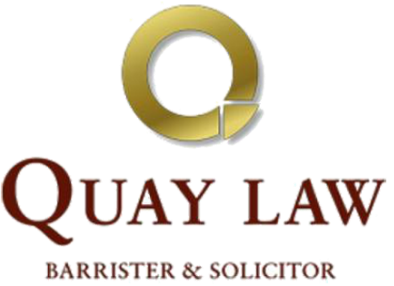Last Will and Testament NZ
5 November 2010
by Ian Mellett of Quay Law Solicitors
In this legal article, Auckland lawyer Ian Mellett of Law Firm, Quay Law discusses the importance of regularly reviewing and updating your Will and last wills and testament, which is a very important document that formally sets out how your assets are to be dealt with upon your death. A recent media article has highlighted this aspect as follows:
Will and your intent – Your last will and testament
Don Wilkinson, a police officer tragically slain in September 2008, executed a Will with the Public Trust in 1985, when he was 23 years old. At that stage his assets comprised two guitars and a second-hand car.
It appears that Don Wilkinson was a frugal individual who had remained unmarried and childless and by the time he was killed, his estate had grown to $2 million.
His Will effectively bequeathed “the whole of my estate both real and personal” to Ron Wilkinson. Ron was Don’s adoptive father and the wording contained in the Will has resulted in Ron being the sole beneficiary of the Will leaving Don’s mother, Bev Lawrie, without a penny. His parents have been separated since 1983.
According to the media, Ms Lawrie and other family members and friends say Don Wilkinson and his mother were very close, and he would not have wanted her left with nothing.
As Don was killed two years ago his mother is now unable to contest the Will under the Family Protection Act, as potential claimants have 12 months after a Will is probated to bring a claim.
Reviewing your Will
It is good practice to review your Will on a regular basis. Life takes its course and situations change. We have compiled a list indicating some of the situations that could prompt you to alter your Will:
- The birth of a child
- The adoption of a child
- The commencing of a relationship
- The ending of a relationship
- The death of a family member, executor or beneficiary
- The changing value in any of your assets
- The receiving of a large inheritance
- Moving countries, or
- The purchase of a home or business.

There are certain events that will automatically change your present Last Will and Testament. Under these circumstances, a revision or renewal of your Will should necessarily be conducted. These events include
- Getting married
- Getting divorced and
- The birth of a child or adoption of children.
Dying intestate
We are often asked what happens if a person dies without a Will. If this situation occurs you are said to have died intestate. The administration of your estate is then governed by the provisions of the Administration Act 1969 which sets out a statutory regime to be strictly followed. Your wishes are unfortunately not relevant.
What else should you consider in your Last Will and Testament?
We also recommend that you regularly review your entire estate planning structure. People are inclined to view estate planning in terms of investments, property, finances and assets. Yes, it is all of these things but the focus of proper estate planning should be the individuals who will benefit from your efforts and legacy. This may initially be yourself and your partner but will obviously need to include your children and possibly other loved ones after your death. Failure to have an appropriate estate planning structure in place can have disastrous consequences for all concerned.
We at Auckland law firm, Quay Law recommend that you seek professional legal advice with regard to both your Will and any related estate planning aspects. Your NZ lawyer can provide you with the requisite advice and guidance to ensure that your affairs are in order and that your wishes can effectively be implemented once you have passed away. This will give you the certainty and peace of mind that your loved ones are looked after in the manner you intended.
Please feel free to contact Ian Mellett (BComm LLB H Dip Tax) at Auckland law firm Quay Law for more information, or if you have any questions regarding your last will and testament , will or estate planning needs visit our law firm website www.quaylaw.co.nz for more information.
(As published in The South African — October/November 2010) Download the PDF

